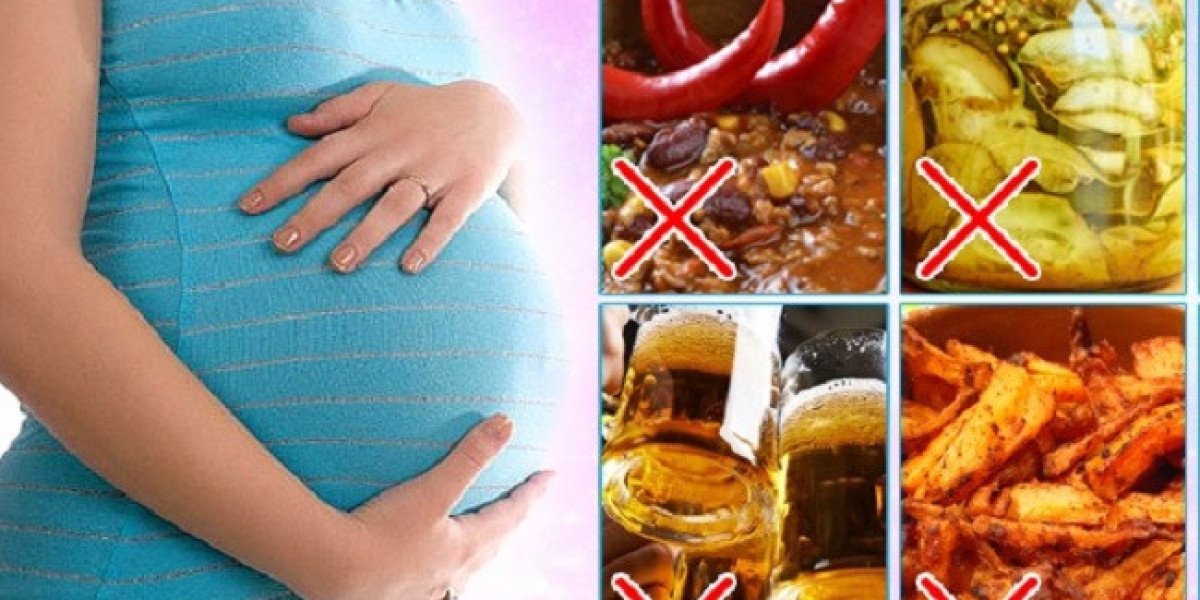Pregnancy is a crucial time when a woman's body undergoes significant changes to support the growth and development of the baby. Proper nutrition is essential during this period, and there are certain foods that should be avoided to ensure the well-being of both the mother and the baby. Here's a guide to foods to avoid when pregnant:
Raw or Undercooked Seafood and Shellfish:
Consuming raw or undercooked seafood, such as sushi or raw oysters, poses a risk of bacterial or parasitic infections that can be harmful during pregnancy. Opt for fully cooked seafood to minimize the risk of foodborne illnesses.
High-Mercury Fish:
Some fish, particularly large predatory fish like shark, swordfish, king mackerel, and tilefish, may contain high levels of mercury. Excessive mercury intake during pregnancy can harm the developing nervous system of the baby. Choose low-mercury options like salmon, shrimp, and catfish instead.
Undercooked or Raw Eggs:
Raw or undercooked eggs and foods containing raw eggs, such as homemade Caesar dressing or cookie dough, may harbor the risk of Salmonella infection. Ensure that eggs are thoroughly cooked to eliminate this potential risk.
Unpasteurized Dairy Products:
Unpasteurized milk and dairy products may contain harmful bacteria like Listeria, which can lead to serious complications during pregnancy. Opt for pasteurized dairy products to reduce the risk of bacterial contamination.
Deli Meats and Processed Meats:
Deli meats and certain processed meats like hot dogs may be contaminated with Listeria. To minimize the risk, heat these meats until they are steaming hot before consumption.
Caffeine in Excess:
While moderate caffeine intake is generally considered safe during pregnancy, excessive amounts can be linked to an increased risk of miscarriage. It's advisable to limit caffeine intake from sources such as coffee, tea, and certain sodas.
High-Sugar and High-Fat Foods:
While indulging in sweets and treats is acceptable in moderation, excessive consumption of high-sugar and high-fat foods can lead to excessive weight gain and increase the risk of gestational diabetes. Focus on nutrient-dense foods for a balanced diet.
Alcohol:
Alcohol consumption during pregnancy is associated with an increased risk of birth defects and developmental issues. It's advisable to avoid alcohol entirely during pregnancy to ensure the health and well-being of the baby.
Certain Herbal Teas and Supplements:
Some herbal teas and supplements may contain ingredients that are not recommended during pregnancy. It's essential to check with a healthcare provider before incorporating any herbal products or supplements into the diet.
Unwashed or Undercooked Sprouts:
Raw sprouts, such as alfalfa, clover, and radish sprouts, may carry a risk of bacterial contamination. Thoroughly cooking sprouts can help reduce this risk.
Maintaining a healthy and balanced diet during pregnancy is crucial for the well-being of both the mother and the baby. It's important for pregnant individuals to consult with their healthcare provider to receive personalized guidance on nutrition, taking into account individual health conditions and specific dietary needs during this transformative period.
 AdBlock Detectado
AdBlock Detectado








